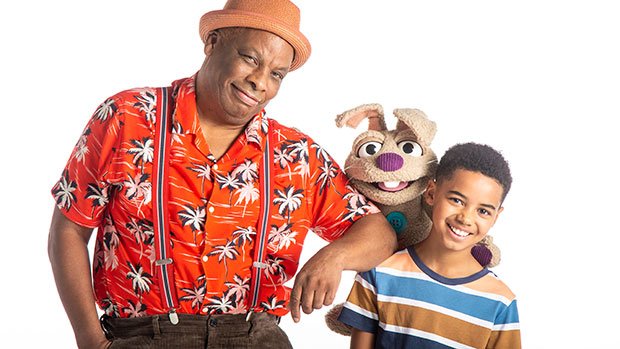BFI study finds less than a quarter of British children believe TV represents them

The World According to Grandpa, supported by the Young Audiences Content Fund
A study led by Cardiff University and commissioned by the British Film Institute (BFI) has found that just 24% of four- to 18-year-olds in the UK believe they see children and young people that look like them on TV.
The research showed that, over the last two years during the Covid-19 pandemic, TV has helped children and teenagers feel part of a community at a time when they felt isolated from their friends, classmates and family, and has helped to spread positivity in their lives.
However, many children and young people don’t feel their lives and experiences are reflected on the small screen, with just 35% thinking they see young people on TV that share similar interests or experiences with them, while only 31% see other young people they think sound like them on TV.
According to the report, lack of representation is driving young audiences towards YouTube and social media, where they feel they can see people and find experiences that reflect their own, even though many also noted the detrimental effect that some content they consume on these platforms can have. Children among the older 14-18 age bracket said social media was exacerbating the issue of having to conform to a certain ‘look.’

Jackie Edwards
Young people across the country have a desire to see more diverse representation in TV shows, with 57% of children in 2021 – an increase from 54% in 2020 – feeling that there are not enough people who look like them on TV, whilst many children with a disability, from ethnic minority backgrounds or from the LGBTQ+ community felt they were completely invisible from TV.
The study also revealed that children with no siblings, children from divorced families and children with key worker parents were keen to see more diverse experiences on screen reflecting their situation, with some children noting that television provides a unique sense of togetherness that other forms of media do not.
The findings show television is a media form that young audiences still value for the sense of shared viewing and experiences it offers and that young people, particularly younger children, see TV as a key part of their education.
Launched as a three-year pilot by the UK government and administered by the BFI, the Young Audiences Content Fund (YACF) was created to work with public service broadcasters to address these issues. Children’s series that the YACF has supported include Go Green with the Grimwades and The World According to Grandpa, both for Channel 5’s Milkshake!
As part of the fund’s activity, the BFI created the See Yourself on Screen challenge in 2020, which launched for a second year in June. The challenge invited four- to 18-year-olds across the UK to create an idea for a mini TV show, receive masterclasses from celebrities and leading television figures, and then see the idea they create on one of the partner channels. The data for the BFI’s new report was drawn from the entrants to the See Yourself on Screen challenge.
The YACF’s head of fund, Jackie Edwards, said: “The YACF exists to support the creation of unique, inspiring, diverse shows for children and young people in this country. The fund is directly addressing the gaps found in the research released today. YACF support has delivered 42 brand-new UK-originated programmes that would not otherwise have been financed by the market.
“Furthermore, we are financing new stories from all corners of the UK, with a good spread of projects across all target ages, including older teens, bringing to screen fantastic new series that reflect all of the UK. All of our new projects need to meet the BFI’s diversity standards, which are playing a key role in improving diversity across the sector in front of and behind the camera.”








































